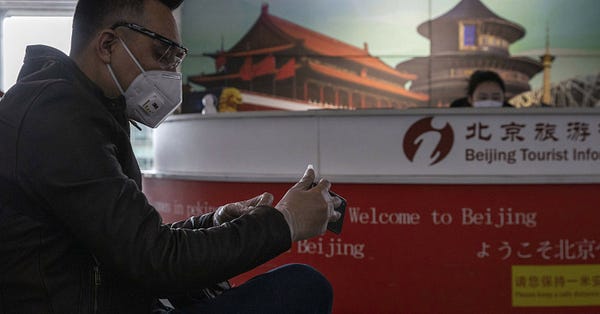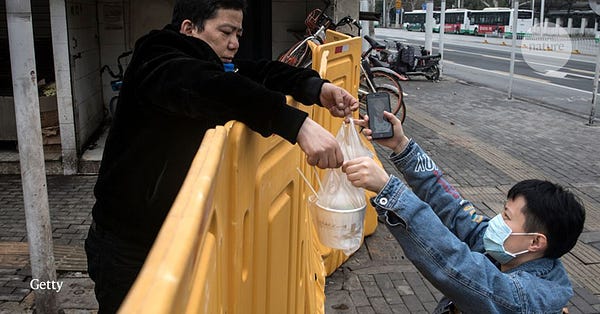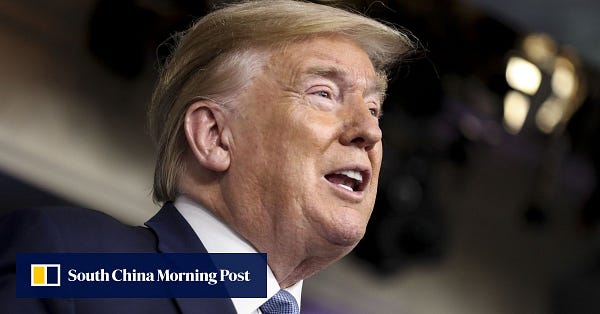COVID-19 is a different issue for China today
After the flattened curve


Wuhan has become just like so many other cities in the world: requiring returnees from overseas to undergo quarantine, as the COVID-19 pandemic has gone global from its origins there. As a result, China is now among the countries that have stepped up border patrols, as the big story of 2020 circles the planet amidst plenty of ironies:


But the experience of China now becomes a barometer for what other countries might be able to expect amidst the coronavirus—and whether it can be stopped in its tracks:


China’s state planner says the economy there will return to normal in the second quarter. Government data showed that January and February retail sales fell by 20.5 per cent, and factory workers being told to stay home resulted in a 13.5 per cent decline. Reuters reported on a wary return to shops as new COVID-19 cases dropped.
“Chinese Virus” goes viral

President Donald Trump defended his decision to “call it where it came from” in tweets that blamed COVID-19 on China—on the grounds that Chinese state media is accusing the U.S. military of creating and spreading the pathogen. Beijing believes that Trump is smearing the country, even though their diplomats also promoted the theory:
The perception from outside China, though, is a new spin cycle for propaganda is here.
Scenes from a media war


Journalists from three U.S. newspapers had their Chinese press credentials revoked, a ban which extends to reporting from Hong Kong and Macao, in the latest escalation of a conflict that found the number of Chinese state media reporters capped by the White House, in retaliation for Wall Street Journal journalists getting thrown out of China.


Going deep inside TikTok


While social distancing may help increase youthful enthusiasm for the Chinese-owned video app, an exposé from The Intercept revealed policies designed to suppress attention to user clips of people and places that weren’t so slick. TikTok responded to the report by saying these were moderator guidelines designed to prevent bullying.
The revelations surfaced soon after another bit of TikTok news, amidst privacy concerns:


Fresh scrutiny over ZTE
NBC News reported that Chinese telecom giant ZTE is the subject of a bribery investigation by the U.S. Justice Department—which the company said was news to itself. ZTE pleaded guilty in 2017 to evading American embargoes by buying U.S. components and shipping them to Iran, something Huawei was also accused of.
The last words, for now
COVID-19 now means that much of the world has stopped going to movie theatres. But the curve flattening in China meant that the Zhongying Golden Palm Cinema in Urumqi was allowed to open with second-run flicks, including two that praised the Communist party. The movie selection might’ve benefitted from more mass appeal:
The China Letter is sent on Wednesdays. If you’re not subscribed yet, do it here:









